
[ad_1]
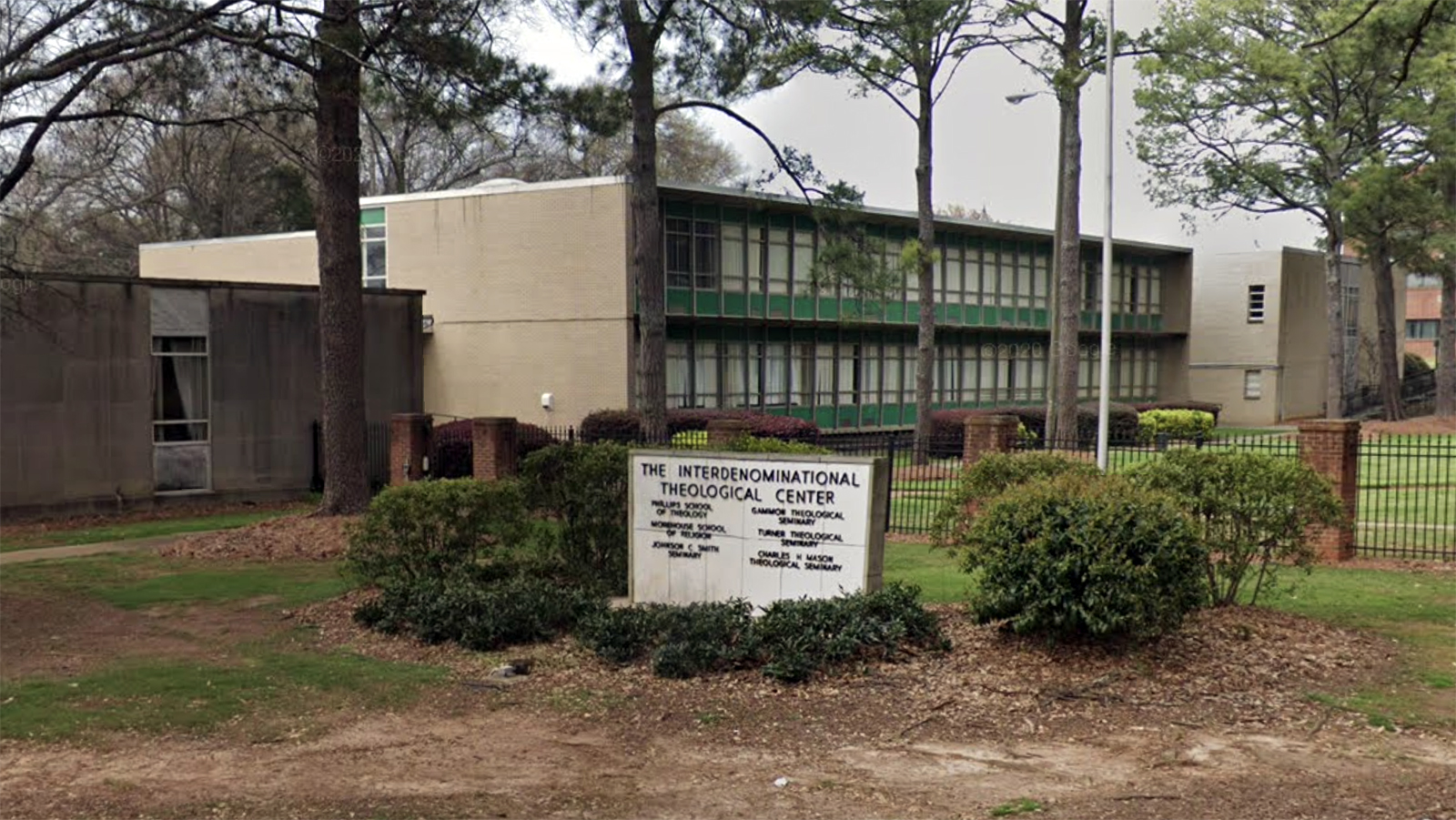
The Interdenominational Theological Center campus in Atlanta. (Image courtesy of Google Maps)
(RNS) — Angelique Desiree Carney Howse has many titles: Baptist minister, health care consultant, student advocate.
Come May 11, when she graduates from the Interdenominational Theological Center in Atlanta, she will receive another title: Doctor. “I’m relieved because this time last year I did not know if I was going to be able to finish,” said Howse, the president of ITC’s Student Christian League. “I did not know if the school was going to exist.”
ITC, a consortium of seminaries in Atlanta known for its decades of educating Black ministers, is one of several faith-based historically Black colleges and universities that have been struggling with accreditation and other challenges, even as other HBCUs are seeing increases in enrollment and infusions of donations.
Howse credited the Rev. Maisha Handy, ITC’s interim president since September, with improving the center since it declared “financial exigency” last April, saying it would reduce faculty, suspend programs and restructure operations.
“Where we were this time last year, we’ve made a complete 180,” Howse said. “For sure, interim President Handy has done the impossible, made a way out of no way completely. We were in dire financial straits.” (Handy could not be reached immediately for an interview.)
RELATED: Black seminary grads, with debt higher than others, cope with money and ministry
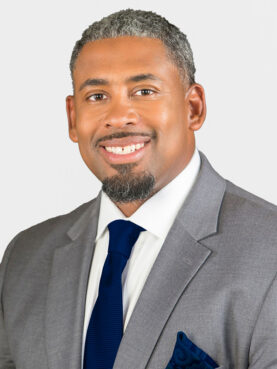
Marcus Burgess. (Courtesy photo)
ITC is not out of the woods. The Southern Association of Colleges and Schools Commission on Colleges, an accrediting agency, has placed the center on probation, citing governance and financial concerns.
The agency has placed Virginia Union University — home of the Samuel DeWitt Proctor School of Theology — on probation for similar reasons, and St. Augustine’s University in North Carolina is awaiting arbitration proceedings after the commission determined its accreditation should be terminated.
“During our appeals process, they did not allow us to show any new evidence,” said Marcus Burgess, interim president of SAU, who took on the role after SACSCOC’s ruling and has worked to bring the school closer to compliance, “rightsizing” the budget and making faculty and staff cuts before Christmas and again earlier this year.
Virginia Union University officials did not respond to a request for comment about its accreditation status. In a Frequently Asked Questions page on its website, the school expressed confidence in addressing the requests of the accrediting body.
“The University is continuing to expand the Business Office, strengthening our internal fiscal
infrastructure to accommodate the University’s growth,” said the school, which dates to 1865. “This includes streamlining processes and reducing the time it takes to accomplish transactions.”
Accreditation questions can harm a school’s prospects even as it fights its way to solvency. ITC has seen a significant drop in its enrollment over the last decade. The Association of Theological Schools, ITC’s second accrediting body, which lists the school in good standing, reports it had 448 students in the 2003-04 year, compared with 61 in 2023-24.
SAU, founded in 1867 by the Episcopal Diocese of North Carolina, saw decreases in enrollment, leaving it with about 750 students.
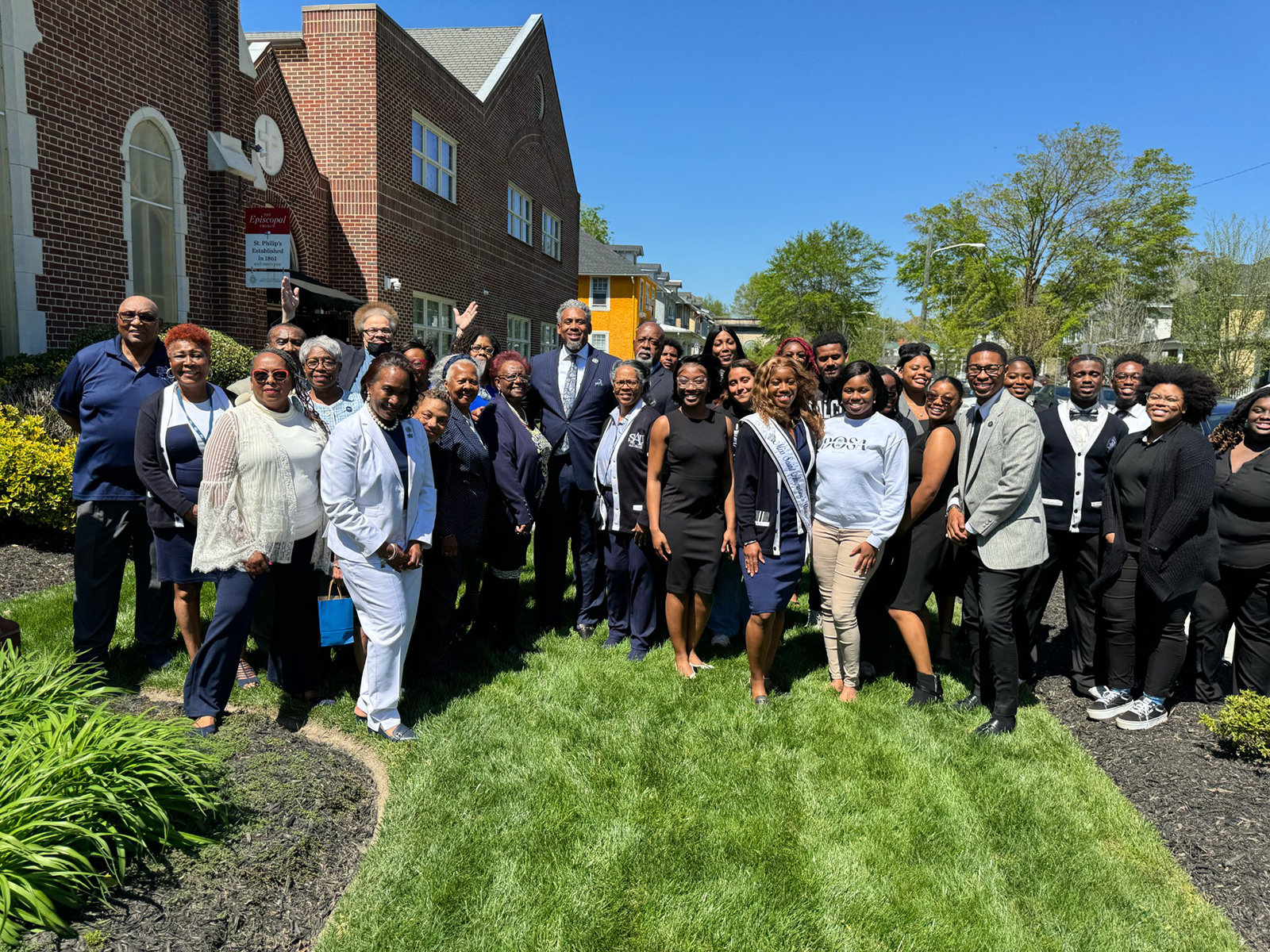
St. Augustine’s University Day is celebrated at St. Philip’s Episcopal Church in Richmond, Va., on April 14, 2024. (Photo courtesy of St. Augustine’s University)
“From fall to spring we probably lost about 200 students,” Burgess said. The school is known for being the childhood home of Sarah and A. Elizabeth Delany, authors of the bestseller “Having Our Say,” whose father, Henry Beard Delany, was one of the first Black bishops consecrated in the Episcopal Church.
On April 1, Burgess shifted the school to remote classes. “I had to cut my costs so I went remote to try to stop the bleeding,” he said. “We’re seeking a little over $5 million or better to help us with the fight to pay for legal fees, to help shore up payrolls, to get things back in order.”
As of mid-April, Burgess said the school had received $400,000 in cash and additional in-kind donations that brought the total to about $1 million.
He said commencement “will go on as normal” on May 4, with more than 120 graduates being honored.
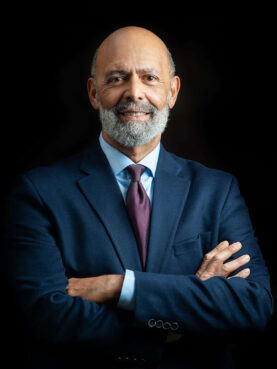
UNCF President Michael Lomax. (Courtesy photo)
As they struggle to maintain their accreditations, some HBCUs are receiving help from the United Negro College Fund, which announced early this year that it had obtained a $100 million grant from Lilly Endowment to bolster the endowments of the fund’s 37 member institutions, including faith-based HBCUs such as ITC and SAU.
Starting next year, each of those schools, which must join UNCF in additional fundraising for the campaign, are expected to receive an estimated $100,000 from a pooled endowment fund, in addition to regular disbursements they receive from the organization amounting to about $750,000 each year.
UNCF President Michael Lomax said the long-term support is needed to help sustain these schools, even if some are troubled in the short term.
“Denominationally related small, liberal arts and comprehensive colleges, urban and rural, are probably among the most at-risk private institutions in the nation,” Lomax told Religion News Service. “And among those are some HBCUs.”
He said his organization further aids member schools by finding and encouraging donors who might support them. Lomax said UNCF is working in partnership with ITC and SAU on meeting operational standards and building assets.
Community members, churches and alumni have been helping HBCUs dealing with financial problems by giving cash, food and in-kind gifts. ITC noted on its Facebook page that Elizabeth Baptist Church in Atlanta gave Handy a $10,000 donation on “HBCU Sunday” in February. Burgess said he received $7,000 from a Virginia Episcopal church he visited in mid-April.
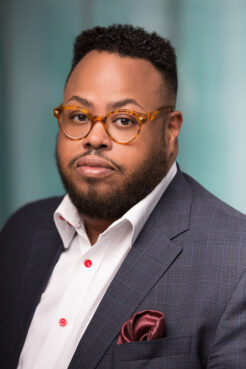
C.E. Patten II. (Courtesy photo)
C.E. Patten II, a 2006 alumnus of ITC who was COO of the school from 2019 to 2021, said ITC’s challenges are complex.
“It’s partially the result of something that I think happens in the Black church in general: It’s about whether or not our leaders always have the right set of administrative skills to serve in their role,” said Patten, a strategy consultant and a former vice president of the Church of God in Christ World Missions.
He believes Handy and the current board “realize that it’s not an overnight task” to overcome decisions made by former school officials.
A dozen ITC students have continued their work toward Master of Divinity degrees at Emory University’s Candler School of Theology, which created a teach-out arrangement that waived application fees for ITC students and allowed them to continue pursuing their education without an increase in costs.
“It was a perfect synergy,” said Sam Martinez, associate dean of admissions and financial aid at Candler, which has 419 students, including 275 in the M.Div. program that launched a hybrid plan in the fall of 2023 as an alternative for its participants.
“So we already had an option for these students.”
In a Friday (April 26) email, ITC’s Handy told RNS that “our Master of Divinity program was reopened in January of this year with new student enrollment.”
Cathryn Stout, one of the students who has moved to Candler from ITC through the teach-out arrangement, said her transition was a “very smooth” one.
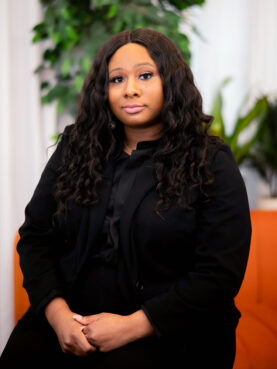
Angelique Desiree Carney Howse. (Photo by XL Shoots)
“I really appreciated my time at ITC because it’s where I learned about theology from an Afrocentric lens and that perspective has continued to shape my faith and my understanding of not only religion, but also the world,” said Stout, a history scholar who hopes to use her ITC degree to pursue her goal of writing biographies of faith leaders.
“And even though I am at Candler now, I still support both institutions. I think there’s a place for both institutions.”
Howse, who is ordained by the National Baptist Convention of America, said she juggled remote classes while working a full-time job onboarding contractors for an Atlanta hospital system. Even as her stipend for working as a campus leader was stopped, she advocated for alumni to financially support the school.
Now, Howse said she expects to continue to support her school and other HBCUs.
“It’s been traumatic,” she said in an interview the day before she defended her dissertation on disease prevention and health promotion in Black churches. “Now that I’m at the end of this thing, I’m looking forward to being done. But my doneness is not a disconnecting.”
Religion News Service receives funding from Lilly Endowment through the Religion News Foundation.
RELATED: COVID vaccine trial includes Black Christian university presidents
[ad_2]